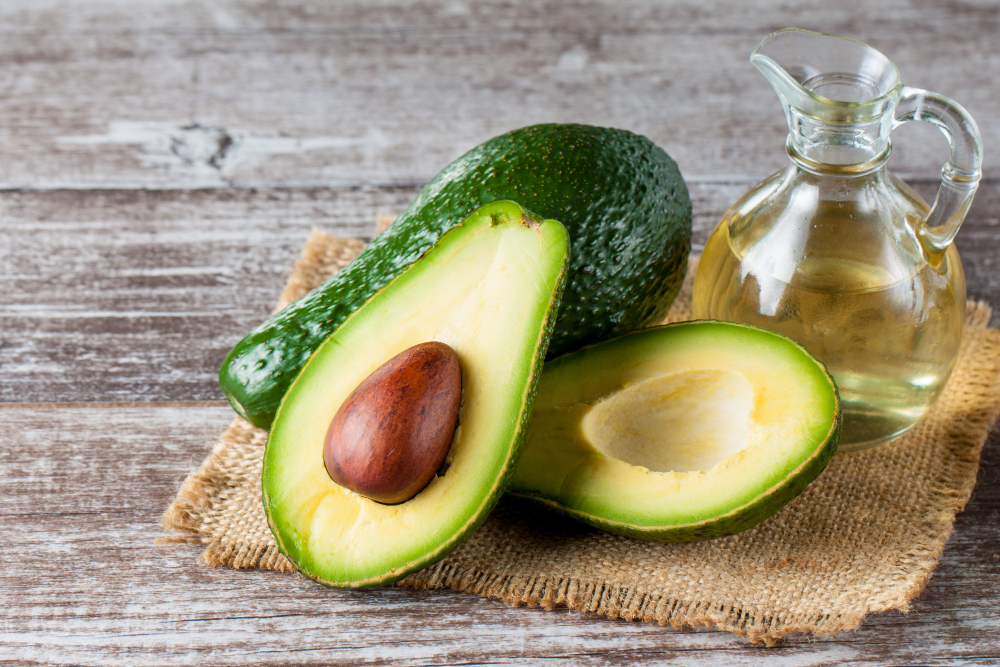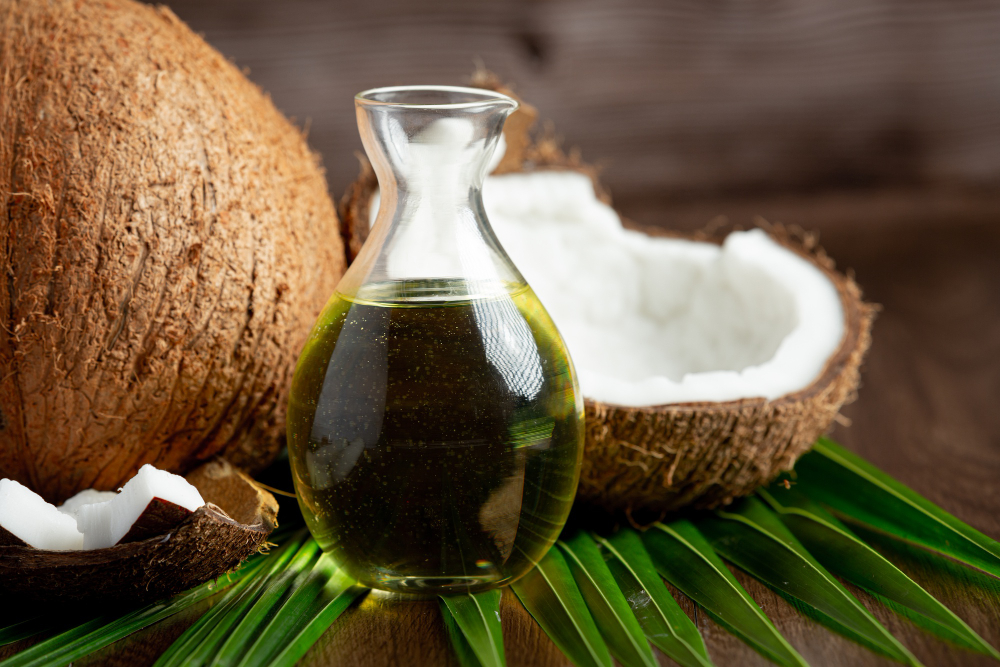Several diets, like the low-carb and keto diets, emphasize the importance of incorporating some fat into your diet. The choice between coconut oil vs. avocado oil comes down to personal preference, as both have similar weight-loss properties.
Many nutritious dishes now contain avocado oil as an ingredient. However, when it comes to beauty recipes and cuisine, it’s popular because of its lack of aroma and bland flavor.
In and of itself, no food can be a miracle cure.
Coconut oil may be more harmful to the heart, but it is less expensive than avocado oil, which can be pricey. If you prefer one type of oil over the other, go for it. Avocado oil is a good choice if you’re monitoring your fat intake.
Because of its high monounsaturated fats and oleic acid content, avocado oil aids in weight loss by lowering abdominal fat. However, as a result, weight loss is severely impacted by the risk of metabolic syndrome.
Many people believe that coconut oil is a weight-loss miracle ingredient, but additional research is needed to see if it can help people feel fuller and lose weight. Even though coconut oil is frequently touted as fat that can help people lose weight and feel full longer, current research does not support this claim.
Is Coconut or Avocado Oil Healthier?
Coconut oil has a high concentration of monounsaturated fatty acids and antioxidants—just like avocado oil, making it an excellent choice for cooking. However, the smoke point of avocado oil is higher than coconut oil’s.
Many nutritious dishes now contain avocado oil as an ingredient. When it comes to beauty recipes and cuisine, it’s popular because of its lack of aroma and bland flavor. As a cooking oil for some kinds of potato chips and many other applications, it is the primary ingredient in mayonnaise brands that promote themselves as being healthier than the competition.
Adding avocado oil to your daily eating habits is a good idea because it provides numerous health benefits. However, as a result, it may not be an everyday part of your food plan. Because of this, many individuals prefer to use other healthy oils instead of avocado oil.
Coconut oil is undeniably a healthy fat, but it’s not sure if it’s as beneficial for losing weight as many people are claiming. Therefore, coconut oil should not be touted as having the same effects as MCT oil.
Coconut oil contains a lot of calories, as do all fats. When trying to lose weight, use it in moderate amounts to enhance the flavor of your food while maintaining your calorie consumption under control.
Does Avocado Oil Make You Lose Weight?
 Metabolic syndrome may make weight loss more difficult. However, the consumption of avocado oil, which is rich in monounsaturated fats and oleic acid, has been shown to lower the amount of abdominal fat and the likelihood of developing metabolic syndrome.
Metabolic syndrome may make weight loss more difficult. However, the consumption of avocado oil, which is rich in monounsaturated fats and oleic acid, has been shown to lower the amount of abdominal fat and the likelihood of developing metabolic syndrome.
Increasing the amount of avocado oil in your diet can help to enhance the overall quality of your diet. In addition, a wide array of fats can be found in avocado oil. Because of this, it improves the body’s uptake of nutrients and fat-soluble carotenoids, which in turn leads to better weight loss.
Avocado oil contains a high concentration of oleic acid, an omega-9 fatty acid naturally found in animal and plant oils. Scientists believe that oleic acid, an omega-9 fatty acid improves blood flow to muscles during exercise and that the substance helps stimulate enzymes that transfer fat to where it’s contained for energy.
Additionally helpful in speeding up metabolic processes is avocado oil. A higher metabolism converts food into energy at a faster rate, which in turn helps speed up the weight reduction process.
In addition, avocado oil has a high viscosity and is nutrient-dense, all of which contribute to a prolonged feeling of fullness. Additionally, avocado oil contains vitamins, minerals, and monounsaturated fatty acids, enhancing digestion. As a result, you can process food more effectively.
Which Is Better for Weight Loss: Coconut Oil or Avocado Oil?
According to popular belief, coconut oil can help with weight loss and keep them feeling full for longer; however, current research does not back this up. Despite all of it, more research on whether or not coconut oil can help people feel full and shed pounds is needed.
As with any other type of fat, calories are abundant in coconut oil. When attempting to lose weight, use it to improve the flavor of your meal while keeping the number of calories you consume under control; use it in moderation and in small amounts.
Although there is no denying that coconut oil is a healthy fat, the extent to which it aids in weight loss may not be as great as many people believe it to be. Because of this, it is not appropriate to advertise coconut oil as having the same properties as MCT oil.
Since coconut oil is an excellent source of fatty acids, consuming it causes your body to burn fatter and provides your body with more energy, which in turn gives you more energy to devote to physical activity. On the other hand, avocado oil contains a high proportion of monounsaturated fats, which are beneficial to our cardiovascular health and help lower our cholesterol levels.
Avocado oil also benefits weight loss by accelerating the exchange of food into energy, which in turn aids in weight loss. However, losing weight is made more difficult by the development of metabolic syndrome.
Which Type of Oil Is Best for Weight Loss?
Because they contain fats, no special oil aids weight loss; peanut oil, sunflower oil, rice bran, and mustard oil are the most outstanding oils to ingest if you are counting calories and are healthy eating.
Monounsaturated fats can be found in a wide variety of oils. However, saturated fats tend to be high in calories and dietary fats that can lead to weight gain.
Tea seed oil originated from the tea plant seeds and is commonly used in cooking. In addition, green tea, which has potent anti-aging and weight-loss benefits, can be found in tea seed oil.
When it comes to cooking oils for weight loss, olive oil is one of the most popular and acceptable for weight loss. In addition, using this oil has been demonstrated to reduce cholesterol and lower blood sugar levels after a meal because of its high concentration of monounsaturated fat.
Because of its high smoke point, avocado oil is perfect for frying and sautéing. As a dipping and salad oil, it can also be used to enhance the flavor of meats and vegetables.
While there isn’t a single cooking oil that can help you lose weight, eating a nutritious diet while using some of the oils listed above can help you drop a few pounds and stay healthy at the same time.

